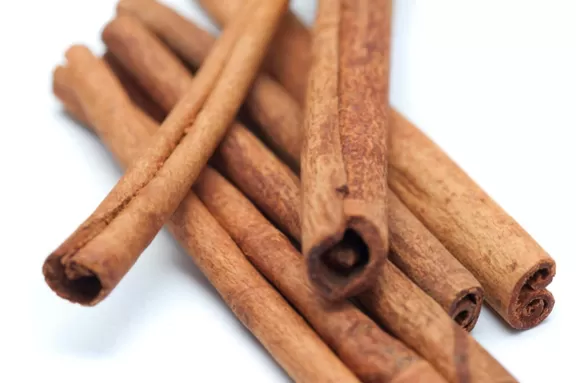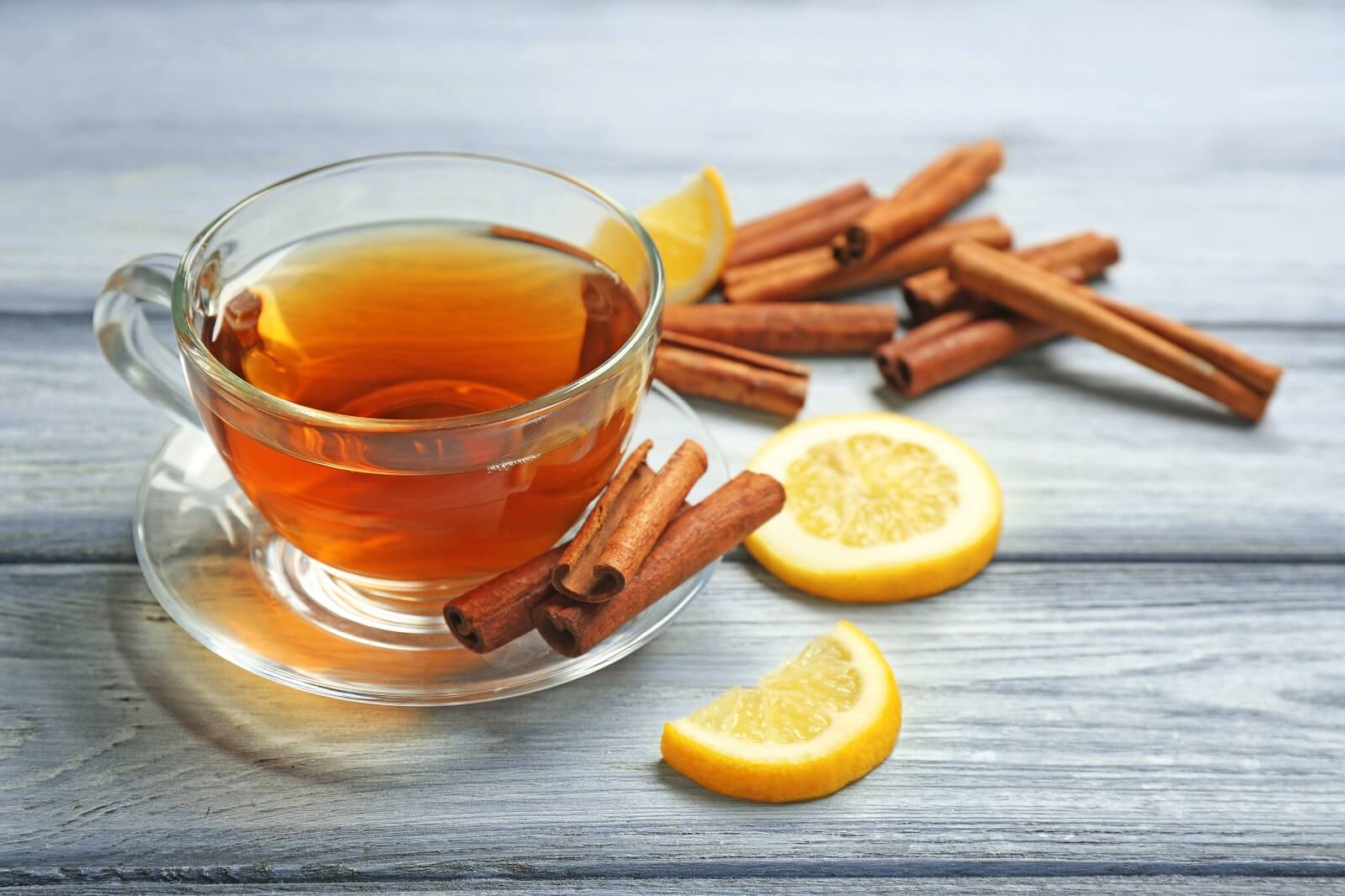
Cinnamon is not a good choice for treating constipation. Research indicates that cinnamon is better suited as a treatment for diarrhea; as it slowed the movement of material through the intestines and reduced defecation frequency in animal studies. Therefore, cinnamon does not appear to be a good herb to use to ease constipation.
A big reason cinnamon may help with diarrhea and worsen constipation is due to the presence of tannins. For example, a water based cinnamon extract was found to have 43.80 mg/g of tannins in it.(source 2) Using data from research, an estimate of the tannins in cinnamon bark powder is 44.1 mg/g.(source 1)
A 2014 study in Pediatric Gastroenterology, Hepatology & Nutrition(source 4) stated that foods high in tannins are not good for constipated children to consume. This is because tannins reduce small intestinal secretions and inhibit peristalsis (peristalsis is the term for the involuntary constriction and relaxation of a canal—in this case the intestinal canal—which causes a wave like movement that push the contents of the canal through it).
This study also cautions not to give bananas to constipated children. Unripe bananas contain 1 mg to 2.5 mg of tannins per gram. Even though tannin content reduces as a banana ripens, it is still not the best for constipation.
Is Cinnamon Tea Good for Constipation?
Cinnamon tea is going to be somewhat like a weaker water based extract of cinnamon; but more diluted and having fewer phytochemicals (plant chemicals). And, as even a food with 1 mg/g of tannin content is not a good idea to consume when constipated; cinnamon tea may have as much or more tannins in it.
Additionally, given the animal studies showing that this herb helps relieve diarrhea, slow intestinal transit, and reduce defecation frequency, cinnamon tea is not the best choice when it comes to treating constipation. It may surprise you, but research suggests even chamomile tea is not a good choice either for remedying constipation either.
The late Dr. James Duke (more about Dr. Duke from the USDA), a prominent expert on herbal medicine in the past, talked a great deal about constipation in his book The Green Pharmacy.(source 3) Dr. Duke said to avoid tea if you have constipation; stating:
…I’d recommend that you avoid tea if constipation is a problem for you. Tea is rich in tannins, which is one reason that it is recommended as a treatment for diarrhea. Tannins help bind stools and hold back bowel movements.
The Green Pharmacy [1997, pp. 141]
Therefore in general, avoid cinnamon tea if you have constipation because it might make it worse.
Samuel Bart’s Digestive Health Solution
Samuel Bart has always been passionate about plants and their ability to keep us healthy. He has put together some of the best natural ways that could help anyone support a healthy digestive system.
Samuel perfected an easy, yet powerful formula, which consists of amazing ingredients. Bart’s supplement is backed by a ironclad 60-day, money back guarantee.

Cinnamon Improves Diarrhea & Implies its Bad for Constipation
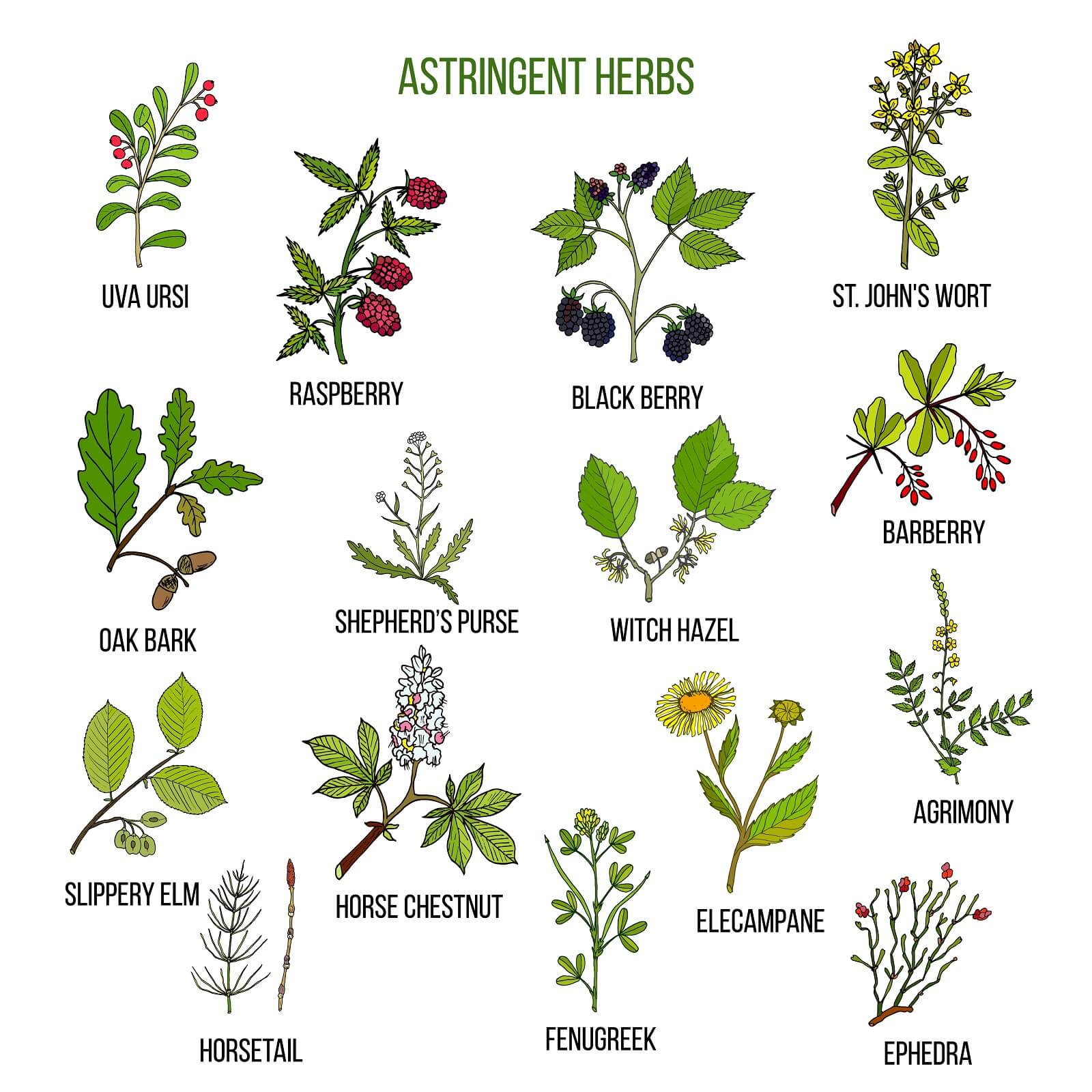
Cinnamon appears to be an efficacious diarrhea treatment in animal experiments. This implies that it would be a poor choice for treating constipation; as it could slow the movement of food through the human digestive system. Let’s look at some relevant research on this.
A 2022 study in Frontiers in Pharmacology(source 5) looked at how a cinnamon bark extract (made using water from Cinnamomum cassia) would influence defecation frequency in rats given diarrhea predominant irritable bowel syndrome (IBS-D).
The study found that the extract reduced the frequency of bowel movements. Additionally, there was no difference in fecal water content.
Another 2012 study in the Journal of Clinical and Diagnostic Research(source 6) looked at how cinnamon extract (water based; using Cinnamomum zeylanicum) would affect mice given diarrhea. The extract was given in two different doses: 100 mg/kg and 200 mg/kg of body weight.
The study found that the extract was quite able to help relieve diarrhea. The extract also reduced the speed of movement of material through the gastrointestinal tract.
Rats with diarrhea not given any treatment had an average of about 21.6 fecal droppings, and those given 100 mg/kg of the cinnamon extract had about 9.8 fecal droppings on average.
The extract also acted similarly to the prescription antidiarrheal drug Loperamide (brand names: Imodium A-D, Diamode).
Rats were given charcoal meal to determine the time it would take for their feces to show the meal had passed through their gut. Rats without treatment had charcoal in their droppings in about 59 minutes. Loperamide treated rats showed charcoal droppings in about 220 minutes. Rats given 200 mg/kg of body weight of the cinnamon extract showed these droppings in about 169.8 minutes.
A quote taken from this study explains the rationale behind the reason why cinnamon would have this effect:
[Plant chemical] screening revealed the presence of alkaloids, glycosides, sugars, terpenes and flavonoids. Earlier studies have shown that the anti-dysenteric and [antidiarrheal] properties of medicinal plants were due to the presence of tannins, alkaloids, saponins, flavonoids, sterols and/or tri terpenes and reducing sugars. Hence, tannins, reducing sugars, sterols and/or tri terpenes may be responsible for the mechanism of action of the anti-diarrhoeal activity of Cinnamomum zeylanicum.
Journal of Clinical and Diagnostic Research [(2012) 6(2):215-219]
A 2021 study in British Poultry Science(source 7) looked at how cinnamon bark oil emulsion influenced small intestine motility of hens. The study concluded that the cinnamon emulsion might effectively slow down the passage of material through the digestive system of hens.
A study published in 2010 in Integrative Medicine(source 8) discussed some of the ways cinnamon might impact the digestive system.
Cinnamon has been shown to lessen smooth muscle contractions in guinea pig trachea and ileum (the last part of the small intestine) and in a dog's stomach, ileum, colon. It is also antispasmodic (a drug used to relieve spasms of involuntary muscle) possibly mainly because of its cinnamaldehyde content.
These findings may be transferable to humans, but research at the time of this writing is limited.
Guaranteed 24 Hour Constipation Relief
Dr. Scott McLeod, PharmD received his doctorate from the WSU College of Pharmacy. His book on constipation is guaranteed to show you how to get relief in 24 hours or less-or your money back (60 day, 100% refund guarantee).
Everything used in this plan is from nature. No use of harmful laxatives. People who have used these say they work BETTER than over-the-counter laxatives!

Cinnamon & Constipation Due to Inflammation
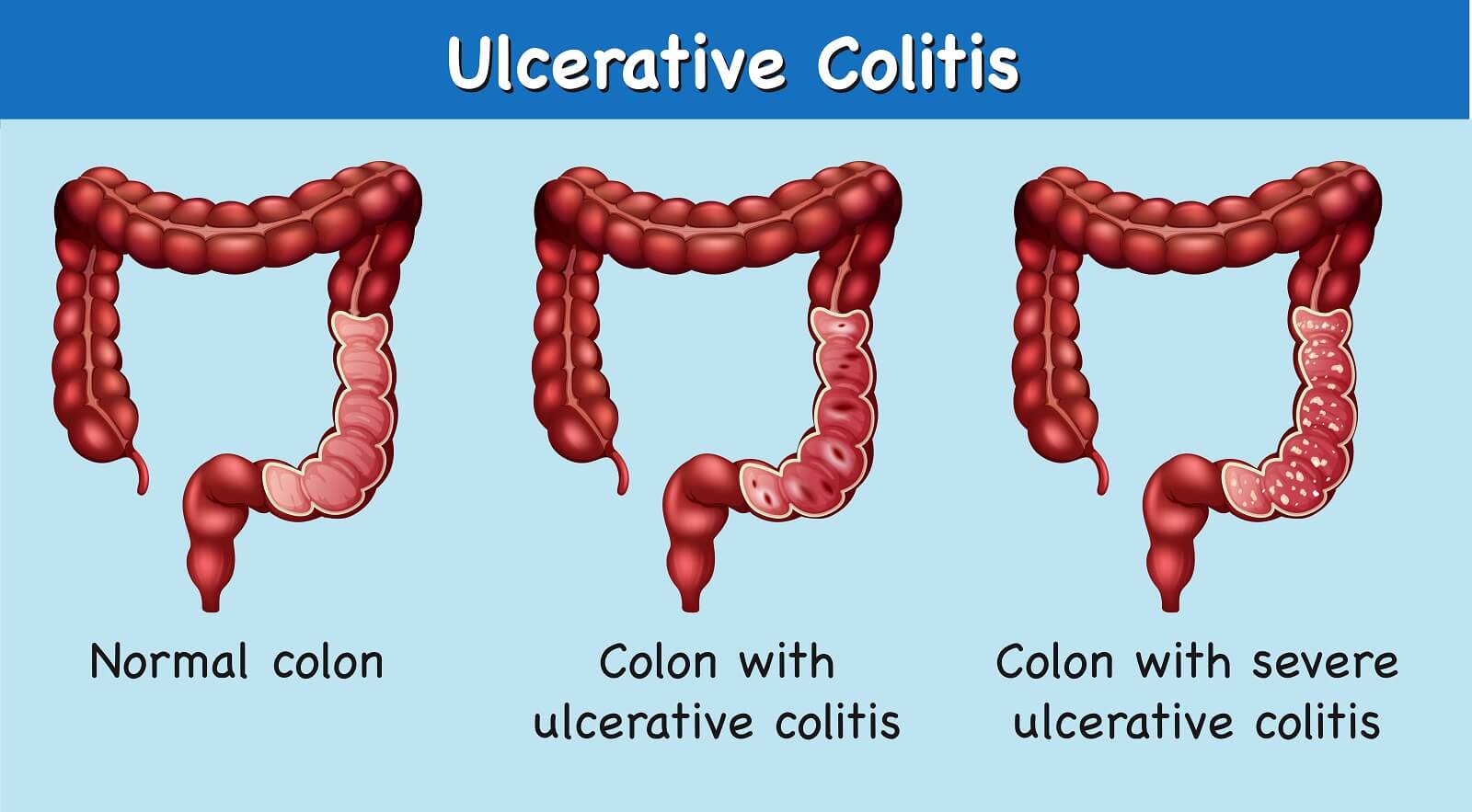
Cinnamon is an herb that may help to reduce intestinal inflammation. And diseases such as ulcerative colitis (an inflammatory bowel disease causing inflammation and ulcers in the large intestine) have been shown to cause constipation. So the question then becomes, “is cinnamon still a viable candidate for treating constipation if it is due to inflammation?”
Let’s take a look at research confirming that ulcerative colitis can cause constipation; as it is most frequently thought of as causing diarrhea.
A 2018 study, published in JGH Open,(source 9) found that ulcerative colitis can cause constipation. This research was a study using 125 patients that had ulcerative colitis.
The study found that the 46% of the patients had constipation; the primary symptoms were lower defecation frequency (69%), hard stools (43%), abdominal pain (40%), excessive
gas (29%), straining (24%), and feeling of incomplete evacuation (14%). Additionally the study found that this form of constipation was associated with being female and concurrently active disease; but, not with age or disease duration.
The study concluded that constipation with ulcerative colitis is common and affects about half of people with this disease while they have it.
With that stated, let’s take a look at some of the research suggesting cinnamon can reduce intestinal inflammation.
A 2011 study in the World Journal of Gastroenterology(source 10) looked at how cinnamon extract would affect mice given colitis. The study administered the extract to the mice for 20 days. The study found that cinnamon extract inhibited the development and progression of intestinal colitis.
The study explains the extract inhibited the expression of cyclooxygenase-2 (an enzyme that synthesize prostaglandins, which are hormone like chemicals that cause inflammation, fever, and pain) and pro-inflammatory cytokines (substances secreted by immune system cells that have an effect on other cells), while enhancing interleukin-10 (a cytokine that has an anti-inflammatory effect) levels.
A 2012 review study in the Journal of Traditional and Complementary Medicine(source 11) stated that cinnamon has been used as a folk medicine for inflammatory problems.
A 2020 study in the Avicenna Journal of Phytomedicine(source 12) found that cinnamon extract improves inflammation and oxidative stress induced by acrylamide in rats.
A 2023 study in Evidence-Based Complementary and Alternative Medicine(source 13) looked at how a water derived extract of cinnamon would impact inflammation and cancer.
This study states that the water extract of cinnamon has several bioactive chemicals; such as: cinnamaldehyde, cinnamic acid, and polyphenols. These chemicals not only exert an anti-inflammatory effect, but also can fight cancer.
The study also states the whole extract is better at delivering these results, which indicates there may be a synergistic mechanism of action by the presence of more than one cinnamon phytochemical (plant chemical). A quote from the study states:
The aqueous extract of cinnamon contains bioactive components that have significant protective effects against cancer and inflammatory conditions. The synergistic effects of these components have better therapeutic efficiency than when a purified component is used.
Evidence-Based Complementary and Alternative Medicine [2023]
Naturally Treat Hemorrhoids in 48 Hours
Jessica Wright’s unique 5-step, all-natural approach to hemorrhoid treatment delivers permanent relief. Heal hemorrhoids in 48 hours, and eliminate the root cause in 30 to 60 days.
Benefit from Jessica’s 12 years of research; her book is backed by a 60 day, 100% money back guarantee.

Should You Take Cinnamon with Inflammation Induced Constipation?
It seems the logical conclusion of the matter is that if you have constipation, and suspect it could be due in part to inflammation, then the best course of action would be to opt for other anti-inflammatory herbs that do not carry the risk of slowing intestinal transit.
One such herb that will allay inflammation is licorice, and you can learn more about licorice for constipation in this article on the topic.
But possibly one of the better choices to not only tackle constipation but also inflammation simultaneously is ginger (more on ginger for constipation). And, there might be a healing synergy produced by combining therapeutic herbs; as they may reduce inflammation in different ways. If I were facing constipation due to ulcerative colitis, I would go with ginger and licorice.
But, since ulcerative colitis can cause diarrhea, cinnamon might be a great option in this scenario. Something to remember if you know someone struggling with such a situation!
Dr. John Herzog (MD)
Dr. John Herzog, a "survival surgeon" from Maine explains what home remedies work best in a crisis situation.
This may be important in the event you require first-aid or are in an emergency situation without easy access to a hospital. Dr. John Herzog has assembled a large collection of home remedies for such scenarios.

The Side Effects of Cinnamon: Important Cautions
Cinnamon is of course a spice that has a long history as a medicinal herb and culinary ingredient. And, it is generally quite safe; however, there are some caveats to that. If you want to use cinnamon medicinally, Herbsey has an entire article reviewing the side effects and dosage guidelines for this common spice.
Get more information on this topic here: Cinnamon Side Effects and Dosage Guidelines.
Claire Goodall’s Amazing Guide
Clair Goodall is a bee-obsessed, natural medicine convert from Minnesota (USA). And, she does keep bees!
Clair has created 350+ page book documenting how to replace the toxic products and medications in your home with healthier, all-natural alternatives.

A Natural Digestive System Supplement that Helps
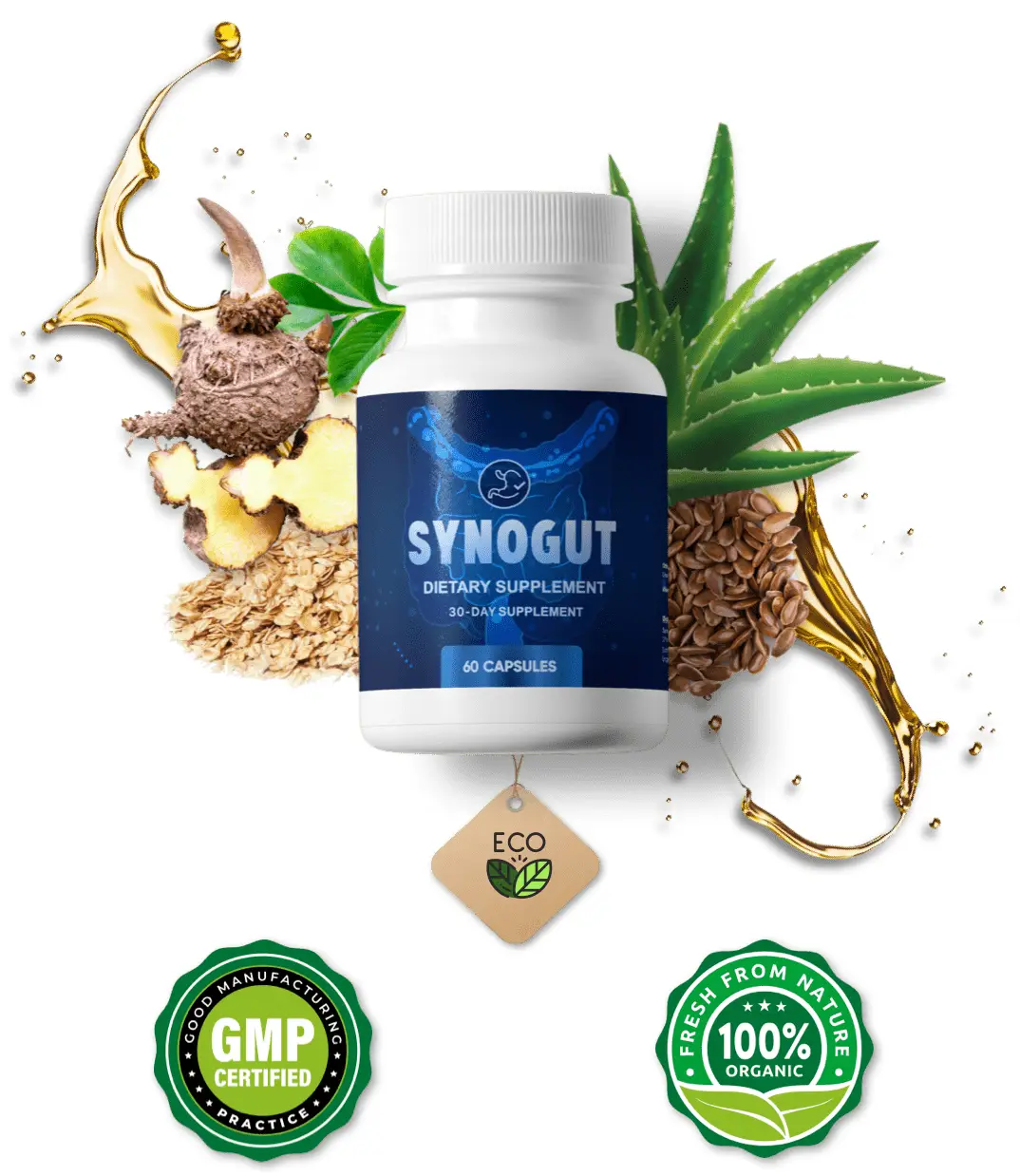
If you have been struggling with digestive problems like constipation, you should know about Samuel Bart. Mr. Bart lives with his wife, Alma, in Nashville, Tennessee.
Mr. Bart has always had a passion for plants and how to use them medicinally. He went on to research some of the most effective ways that could help people support a healthy digestive system.
To this end, Mr. Bart developed a product he calls “SynoGut.”
Every capsule of this supplement is made in the USA, in a FDA approved, and GMP certified, facility under sterile, strict, and precise standards. Synogut capsules are non-GMO. You can rest assured that they do not contain any dangerous stimulants or toxins, and more importantly, they are not habit forming.
His proprietary blend blend contains the following ingredients:
- Psyllium husk
- Bentonite clay
- Black walnut hull
- Oat bran
- Flaxseed
- Prune fruit
- Aloe vera leaf
- Lactobacillus acidophilus (a probiotic bacteria)
- Apple fruit pectin
- Glucomannan root
If this is not the first time you have had constipation, you might benefit from the power these natural items can provide. And, if you have had prolonged constipation, utilizing a supplement like Mr. Bart’s could help you become more regular—without an arsenal of prescription drugs.
Many people have tried synthetic drugs to solve their constipation issues; and if these didn’t work, it may be hard to invest in a natural remedy like SynoGut. To this end, Mr. Bart offers a 60 day, full refund guarantee on his supplement.
If you decide to invest in Mr. Bart’s supplement, and are not satisfied with the results, you can quickly request a refund. SynoGut will promptly refund your purchase; ensuring there is no risk to give Mr. Bart a chance.
SynoGut is sold via the large online retailer ClickBank—a company based in Boise Idaho, USA. ClickBank sells products across the world, and ensures you can get a refund if you are not satisfied with SynoGut’s results.
If you are in a situation where you have “tried everything,” SynoGut is worth the quick purchase and a solid test drive. If you would like to learn more about Samuel Bart’s SynoGut supplement, you can do so at the SynoGut website.
About the Author
Geoff Kent is a natural medicine enthusiast who has been researching and writing about natural medicine since 2008. Geoff is primarily a web developer, but also researches and authors written and video content about natural health. Geoff has a bachelor’s degree in Management Information Systems from the University of Northern Iowa.
More on Geoff KentImportant Disclosures & Disclaimers
It is important to use the information you find on Herbsey.com in the right way. Also for legal reasons, these disclaimers and disclosures are necessary. For further information about each, feel free to click the link provided to the page on this website that provides more information.
Medical Disclaimer
The information on this website is not a prescription for anyone. This information is for informational or educational purposes only, and is not a substitute for professional medical advice or consultations with healthcare professionals.
Advertisement Disclosure
Some of the links provided on this article and website are affiliate links. If you purchase a product after clicking on these links, Herbsey.com will earn a commission. Herbsey.com promotes various products through advertisement and text links. For more information: Our Advertisements.








